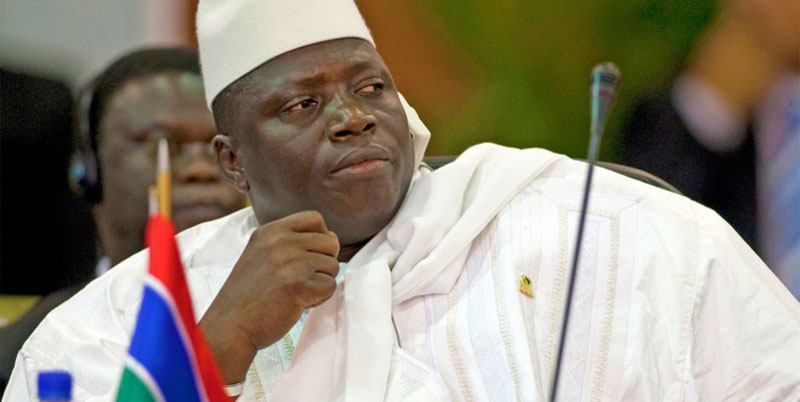During the bombardment of the “No Fly Zone” at the height of the Libyan crisis five years ago, then Libyan “strongman”, Muammar El Ghaddafi, tried to flee the country through Western Sahara. His rebel enemies were hard on his heels. Before they got him, they seizeed a truck-load of gold bullionand packet-fulls of dollar bills, the total of which, some estimates put at three billion dollars.
For Ghaddafi, the loss of the lucre was not the worst of it. The rebels caught up with the convoy of vehicles where Ghaddafi was; and he tried to escape on foot. The nearest hiding place he got to was one of the dry culverts. He had been constructing in the desert to carry water for an irrigation project. The rebels followed him into the culvert and pulled him out.
One of them, who had a dagger, shoved it up his backside. Ghaddafi’s screams of pain were unnerving! The brutality with which the rebels handled him was shocking, but perhaps understandable. These are the same people Ghaddafi, too, brutalized in the heyday of his singularpower. It was now pay-back time, but it was nevertheless painful to watch the video of his execution.
And so, it must have seemed to one of the rebels who had earlier on captured Ghadaffi’s golden pistol. The rebel used it to end Ghaddafi’s tribulation, shooting him in the head.
This end of Ghaddafi’s dictatorship was atbehest of Western powers. And the African Union (AU), which Ghaddafi heavily financed from the Libyan oil largesse, feebly watched in the sidelines. His end should also not have been this way. He refused all well-meaning entreaties to depart while the going was good.
The AU showed more interest in the fortunes of another African dictator, the Gambian “strongman”, YahyaJammeh. It has given tacit backing to the ECOWAS – the Economic Group of the Western African States, that has successfully, pried off Jammeh from power.
For nearly two months, after being defeated in a general election – and then accepting defeat – Jammehhad turned round and had initially refused to hand over power to the winner, Adama Barrow.
But ECOWAS member states persisted to persuade Jammeh to transit from power diplomatically. Up to the last ditch moment; and as it seemed Jammenh would resist, ECMIG – the Economic Community of the Military Intervention Group – was willing to use of military force to oust Jammeh. Senegal, Nigeria and Ghana massed their troops at Gambia’s borders. The Nigerian Air force even flew sorties over the Gambian airspace to show Jammeh that they meant business.
Then, Jammeh capitulated when they sent two planes to escort him out of Banjul to his new exile in Equatorial Guinea.
This is introducing a new dynamic to political power in Africa. The hitherto principle that has been operating and shouted from the thrones of African leaders, and practiced from the AU in Addis Ababa, is the non-interference in the affairs of member states. That principle has been punctured.
ECOWAS has demonstrated that African leaders must have integrity to follow the dictates of their constitutions and the democratic principles they have sworn in exercising power over their citizens. The AU has followed suit; it went ahead and asked the United Nations Security Council to vote for the approval of the use of force to remove an obstinate African despot. Eventually Jammeh saw reason and said almost belatedly that his insistence in staying in power did not justify the spilling of “even a drop of Gambian blood.”
This demonstration of Africa’s resolve on recalcitrant dictators has come a mite too late for the people of the Democratic Republic of the Congo (DRC). President Joseph Kabila, adamantly and in violation of the constitution, refused to hold the mandated general election and hand-over power. In the DRC case, the presidential term limit is ten years of five-year terms. Kabila’s tenure therefore came to an end; and he has no more mandate to continue to rule.
But the South African Development Conference (SADC), states, to which DRC associates with, did not go the route of ECOWAS, perhaps still believing in the inviolability of the AU member states, now-obsolete principle. Instead it left it to the Roman Catholic Church to mediate between the opposition and Kabila.
It has unjustifiably left Kabila in office for another year. Anything can happen in that year for Kabila to try to ingratiate himself to power. Still, SADC now has a precedent to go by, if after that one year Kabila will not hold a general election to transit from power.
szumuz@yahoo.com








